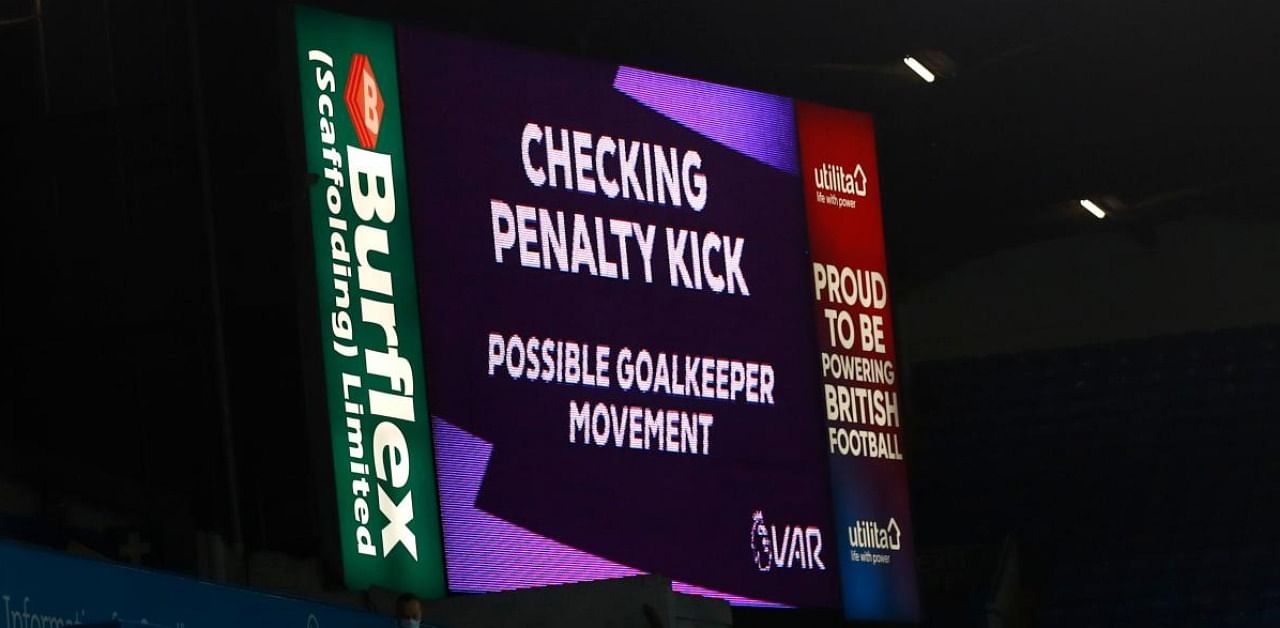
In the 1986 FIFA World Cup quarterfinal match between Argentina and England, when Diego Maradona soared in the air to meet Steve Hodge's miscued shot and pushed the ball past Peter Shilton, a great uproar erupted from the opposition camp. The English players were fuming, protesting vehemently in front of the referee, and the supporters jeered in agony. For Maradona, much to the bewilderment and annoyance of many, had used his hand, forsaking the conventional 'head the ball' method to score the goal. One could argue that El Diego scored a wonder goal later and that England drew a blank anyway, but that goal undoubtedly dented the team's morale.
Such blunders are aplenty in the annals of football history. One still remembers the Chelsea vs Barcelona match in the 2009 Champions League, where referee Tom Henning Ovrebo committed some jaw-dropping howlers. Or the unfortunate 'ghost goal' that England conceded against Germany in the 2010 World Cup, which according to some was poetic justice for the same kind of goal that they scored against the then West Germany during the 1966 final at Wembley.
Referees can never be error-free, for they are only human. However, in an age where the efficacy of machines has a pervading influence in our lives and artificial intelligence is threatening to outrun the cerebral powers of humans, these errors look like an ungainly blot on a beautiful painting, more coarse and appalling than ever. So in the new millennium, those at the helm of footballing powers decided to introduce the blessings of the modern age to the sport and minimise the effect that a refereeing error might have on the match.
Enter the VAR. That is, the Video Assistant Referee. While the football universe was waiting for its introduction with frenzied excitement, some scoffed at the idea and opined that it would unnecessarily derail the pace of the game. But to many, it was a welcome change and a timely intervention in the bid to modernise the game.
Amid such speculations, VAR came into existence. It had to then work its way up the ladder. Slowly but steadily, the tech managed to make its presence felt. From the Club World Cup in 2016 to the top-level leagues of European football like Serie A, Bundesliga, La Liga and later the English Premier League, VAR sneaked in and became an integral part of the sport. So much so that even the UEFA Champions League decided to bring in the system.
The VAR team, stationed in the Video Operation Room, automatically checks every on-field referee decision and informs the referee if there is an apparent error. After spotting the mistake, the on-field referee can either overturn the previous decision or choose to ignore VAR advice or recommend an On-Field Review. All of these moves have a common thread: The on-field referee will take the final decision, giving him the air of a supreme judge.
The VAR has been hailed as a breath of fresh air. However, like every good thing, it also has a detrimental factor. Though it has become possible to check fouls, off-sides and goals to help the referees deliver a judicious verdict, the technology has frequently been embroiled in controversies for dishing out bafflingly wrong decisions. However, it is irrational to blame the VAR as the referee eventually makes the final call. And if the on-field referee pronounces a wrong verdict even after consulting the VAR, then the question arises: Should a separate referee be in charge of the technology?
In cricket, if the on-field umpire thinks that the circumstance is not helpful to provide a conclusive decision, then it can be referred to the third umpire, someone who is removed from the thick of things and brings greater objectivity. Let's imagine a scenario: A referee wrongly shows a red card to a player, thereby hampering one team's winning chances. The linesman or the assistant referee then advises him to consult the VAR. Will the same referee, who had earlier shown the card, be willing to overturn his own decision?
Whether a referee will overturn the decision depends on the amiability of the individual, with the outcome hinging on how he or she chooses to view the solidity of the evidence, thus depriving the matter of a certain amount of fairness. In such a scenario, it would be useful to bring in another referee and vesting that individual with the power of overturning a decision that's deemed controversial by the on-field referee or the assistant referees. It will only bolster the whole process with greater clarity. And the on-field referee will have the option of referring the matter to someone else in case of a dilemma. Also, if the players get a limited opportunity to challenge an on-field decision, then the instances of wrongfully awarded penalties and red/yellow cards decidedly changing the balance of the match can be avoided, or reduced to a great extent.
The juggernaut of technological advancements will gather more pace in the future and it will be impossible for football, or any sport, to ignore its benefits. However, technology, as has been seen so often, can be both a boon and a curse. Football, armed with the gradually evolving VAR, will look to derive the advantage that it brings and expunge the drawbacks. A thorough introspection at this point in time could prove to be extremely valuable. Till then, the VAR will continue to oscillate between the worlds of suspicion and hope.